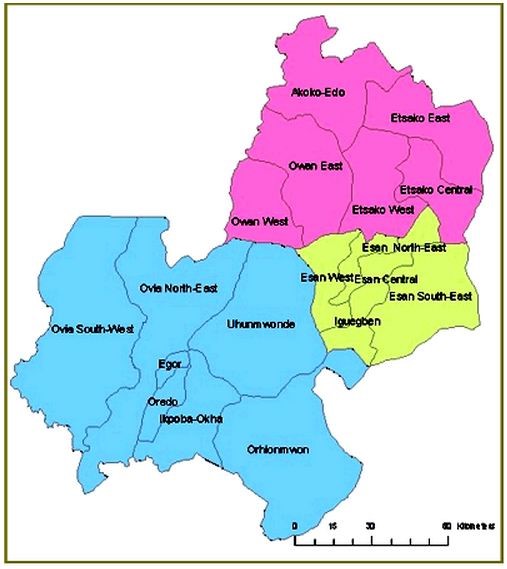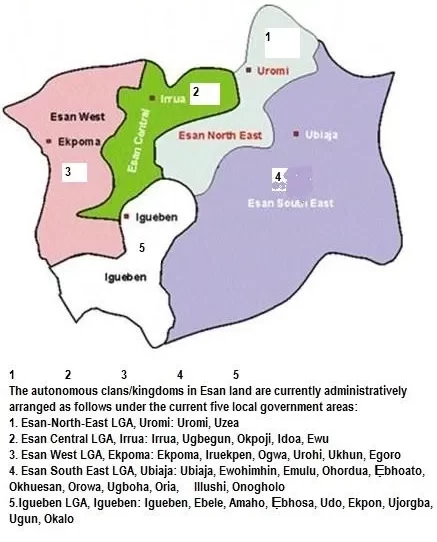95%
People Happy With Our Services
85%
People who like to support our course
90%
People who would like to Join as members
Join our community of strong and dedicated Esan women. Together we can positively impact and create a better world for ourselves and our families.
Map of Edo State
Map of Esan Land showing LGA & headquaters


Aims
- Improve infant mortality rate in Esan, Nigeria
- Promote the rich and unique Esan culture to our children and those from other cultures in the United Kingdom
- Provide financial, and emotional support to vulnerable children, mothers and elderly people in the Esan
- Support education for orphan girl child
- Promote unity, friendship and solidarity among the Esan women in the United Kingdom
Training
The organisation has initiated training programs for its members, covering a range of projects and activities such as safeguarding, domestic violence awareness, signposting, child protection, breast cancer awareness, and diversity bullying.
Additionally, the Esan United Sisters youth group in the UK has been actively involved in various initiatives, including cooking, traditional dancing, and drama. These activities were showcased to promote and deepen their knowledge and appreciation of Esan heritage.
The projects were financially supported by Awards for All and Historic Commercial Vehicle Society (HCVS).
Charity
Nigeria is experiencing a rapid increase in its ageing population. However, the rise in life expectancy, coupled with shifting attitudes among younger caregivers toward ageing and the elderly, has negatively influenced the care and support available for older adults. Despite this growing issue, there is a notable lack of research in Nigeria exploring how perceptions of old age affect the provision of care and support for the elderly.
Poverty among elderly individuals and widows in Nigeria remains a widespread but largely overlooked social issue. Cultural norms that place the responsibility of caring for the elderly on extended family members often lead to their neglect, as many families are unable or unwilling to fulfill this role. This cultural expectation has also hindered the development of formal welfare programs to address the needs of this vulnerable group.
This study utilizes data from In-Depth Interviews (IDIs) and Focus Group Discussions (FGDs) to examine the effects of poverty on elderly individuals and their coping strategies in selected rural communities across Nigeria’s geopolitical zones. The findings reveal that factors such as the loss of a spouse, poor health, lack of property inheritance, the current socio-economic challenges, illiteracy, and limited occupational and income opportunities significantly contribute to the high levels of poverty among elderly people and widows in rural Nigeria.
Additionally, Nigeria’s healthcare system continues to face significant challenges, particularly in rural areas like Esan. The situation has been further exacerbated by a recent increase in child mortality rates. For instance, in 2015, Nigeria’s infant mortality rate was recorded at 69.40 deaths per 1,000 live births, highlighting the dire state of healthcare in the country.
